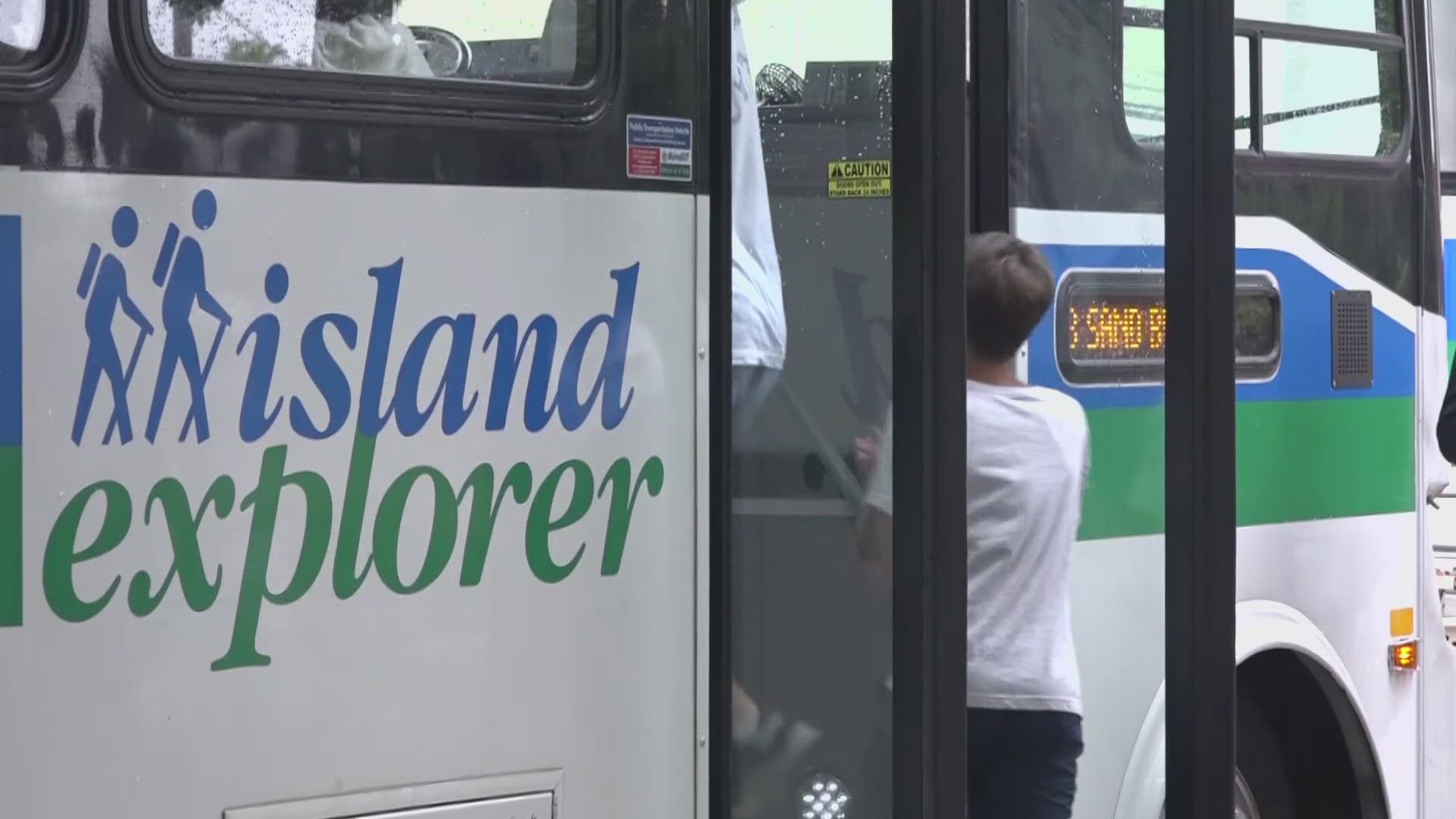MOUNT DESERT, Maine — The Island Explorer buses, bright white with blue-and-green accents, have been a familiar sight on the roads of Mount Desert Island since 1999. And before the decade’s end, the buses will be electric.
Through the U.S. Department of Transportation’s Rebuilding American Infrastructure with Sustainability and Equity discretionary grant program Downeast Transportation will be awarded $23 million to purchase 23 electric buses and create the necessary infrastructure to support them.
Providing cleaner transportation has been central to the Island Explorer buses that serve greater MDI and Acadia National Park since their launch 25 years ago.
Stephanie Clement is the vice president of conservation with the nonprofit Friends of Acadia and has been involved in helping implement the first eight buses in 1999.
“We started with propane fuel because that was the most environmentally sound fuel we had available at the time,” Clement said. “It’s really exciting to be able to advance beyond fossil fuels and to electrifying the fleet at this time.”
Friends of Acadia, the National Parks Service, and the state of Maine are slated to contribute another $7 million to the EV bus project, bringing the total funding to just over $30 million.
The Island Explorer system circulates 32 buses seven days a week from June through October. Ridership peaked in 2019 at 648,105. Ridership went down a bit following the start the pandemic. In 2023, the buses had about 451,032 patrons. However, ridership projections are up this year by about 15 percent as of July compared to last season.
Subtracting those thousands of cars off the road minimizes congestion and pollution. The service is integral to operations at Acadia National Park, according to park Public Affairs Officer Amanda Pollock.
“The Acadia experience would not be what it is without the Island Explorer buses,” Pollock said. “Having an option where visitors can leave their car and experience the park car free is critical to experience Acadia in all of its glory."
This is not the first time Downeast Transportation has considered electric buses. However, until now there have not been vehicles capable of traversing Acadia’s terrain and climate according to Paul Murphy, executive director with Downeast Transportation.
“As we got down the road with that manufacturer who was based in California, they walked away from it," Murphy said, recalling point at which he mentioned the buses would need to endure weather below zero degrees.
Yet, Downeast Transportation was able to run a test program last year with two different buses from two EV manufacturers. The test run helped clarify what qualities a bus should have given the characteristics of the region.
“It did identify that a smaller bus was probably more useful here in Acadia,” Clement said. Many buses are too tall for the bridges in the park.
But overall, Clement found the buses to be great.
“It was wonderful. It was quiet, it was very smooth, and it was a great experience overall,” she said.
The pilot program was monitored by the National Renewable Energy Laboratory, which collected data to aid in bus selection and infrastructure development.
Residents and guests should not anticipate electric explorer buses until 2028 according to Murphy. However, this delay isn’t something he is concerned with.
“We expect that there will be further improvement and further cost reduction as we approach the time when we place an order,” Murphy said.
The between time will also be spent planning and implementing the needed charging infrastructure to accommodate the buses.
Local climate and environmental advocacy group A Climate to Thrive sees the $30 million project as an opportunity to create resilience on MDI.
“If a certain type of vehicle is utilized, you have the opportunity to use the batteries in the buses for storing power that could be fed back into the grid when we have a power outage,” Johannah Blackman, the executive director for A Climate to Thrive, said.
In the meantime, the Island Explorer buses will continue to run every day, morning to night, through Oct. 14. After which, the buses will integrate into other regional routes for the duration of the off-season.

